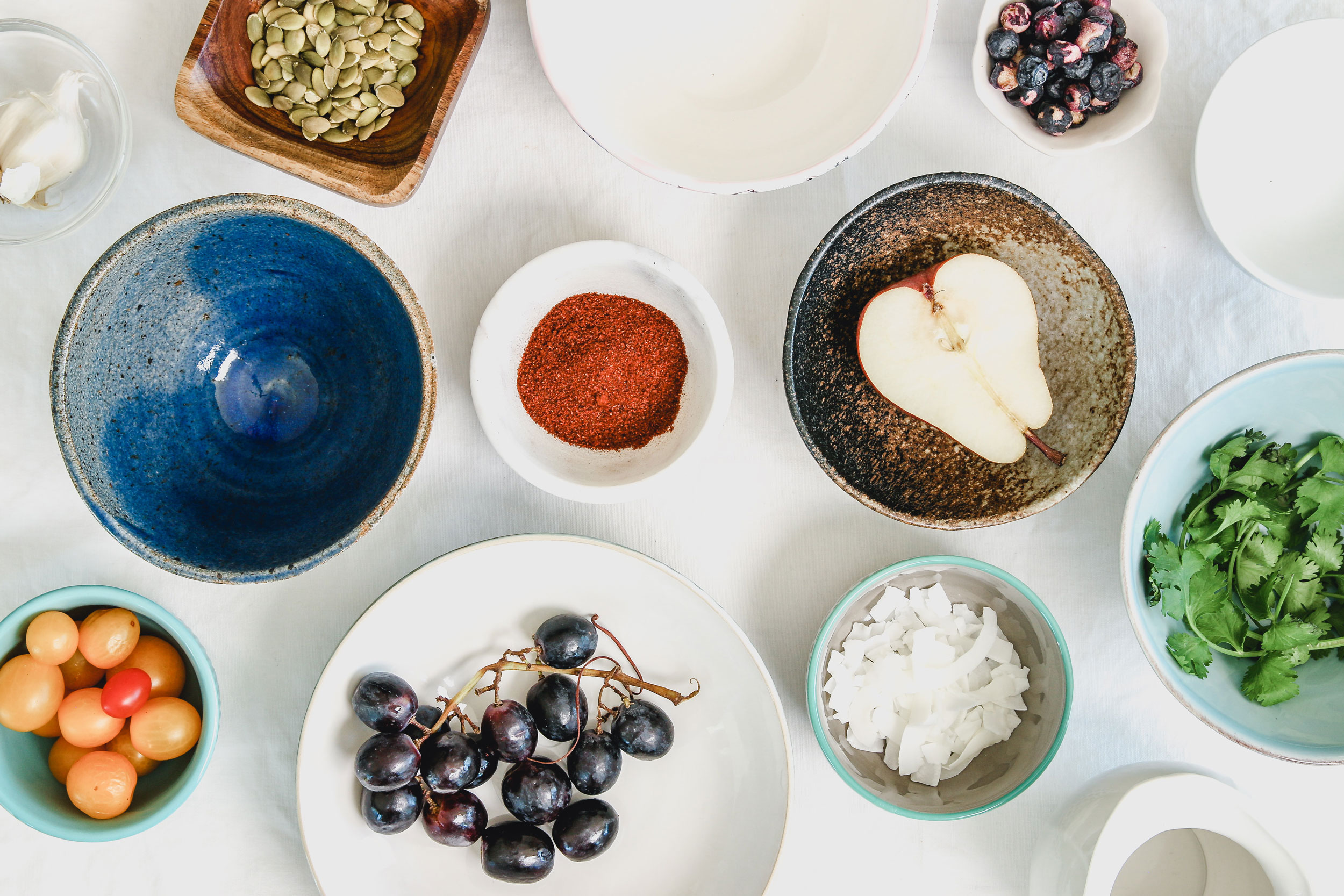Without a doubt, the topic I have been asked about the most over the last several months has had to do with the Netflix documentary The Game Changers. And specifically, what do I think about it?
Admittedly, it took me a while to watch this film. But after I was asked about it for the umpteenth time, I felt it was my duty to get fully informed so I can offer my professional opinion.
So my opinion is what you’re about to receive.
My initial impression was that this film was done incredibly well. So well in fact, that if you didn’t go to school to study this stuff and keep up to date with the research, I can understand why you’d want to stop eating animal products right NOW.
I don’t think that I’m going out on limb to say that the filmmakers are biased towards a plant based/vegan diet. That’s totally fine. I’m biased too and so are you. This is an important point that often goes overlooked. There is nothing wrong with being biased. Each of us is a product of our own individual set of life circumstances that has enabled us to see the world and everything in it a certain way. In other words, we know what works for us. A problem only arises when we fail to realize that a certain level of bias exists in us all, and start to believe that our way of doing things is the best and only way.
Had they simply stated that a plant based diet was the best choice for certain people, I wouldn’t have a problem with it. In fact, I would even agree. But they took it a step further.
Personally, I take issue with the assertion that a plant based diet is the optimal diet for an athlete as well as everyone else because it’s just not true. Remember my past article, Is the Keto Diet Best For Me? While the two diets are obviously different, the concept applies swimmingly well here. And for what it’s worth, I’m not aware of any evidence that supports the claim that a vegan diet increases the strength and performance of an athlete.
This might surprise you but the jury is still out on all of the various diets. Vegan, vegetarian, mediterranean, low-fat, paleo, keto, or carnivore – take your pick. In the grand scheme of things, there is very little we know with absolute certainty. We do know that each of these diets can offer great benefit to certain individuals, while at the same time doing damage to others.
So far science has not identified the one best diet or eating approach, and given this, I’m pretty confident no documentary maker has either. Most nutrition debates won’t be solved anytime soon – maybe not even in our lifetimes. Just think about the egg. How many times have we gone back and forth on that alone? Therefore, in many ways we’ll probably never really know for sure if we’re “right.”
The folks over at PN (Precision Nutrition) summarize this perfectly, “Scientific progress is more about being progressively less wrong than suddenly understanding some ultimate truth.”
Despite all the conflicting information floating around, there are a few foundational principles that just about everyone does seem to agree upon, so let’s start there: First, eat more whole and minimally processed whole foods and less highly-processed foods. Second, more vegetables are probably better than less vegetables. And third, eating enough protein is crucial for health, performance, and body composition.
There you have it! That’s basically what is universally agreed upon. It’s the matter of how one arrives there that we like to debate.
I’m taking the time to write this article to offer a greater understanding of the issue as a whole and not attempting to align you to my way of thinking. While I was watching this documentary, I jotted down what I believed to be some relevant points that were either minimized or skipped over that need to be taken under consideration.
I also encourage you to not just take my word for it. Think about these points for yourself, and better yet, check them out for yourself if something doesn’t seem right.
Let’s start with your normal ordinary individual who is consuming the typical Standard American Diet (SAD) most, if not all, days of the week. If you’re not familiar with SAD, it’s a diet high in processed fat, sugar and salty foods with minimal fresh whole food.
Say this individual makes the switch from breakfast sandwiches in the morning, grabbing lunch out, and frozen pizza for dinner to a diet entirely comprised of fresh vegetables, fruit, whole grains and beans? My bet is they are going to feel pretty darn good! Is this because they gave up animal products? Or could giving up all the processed food have something to do with it?
Relating to this, it’s important to note that a SAD that contains meat, is not the same thing as a Whole Foods diet that contains meat. However, up until this point, research has treated them the same.
And while on the topic of meat, it’s important we’re comparing apples to apples. I think you’d agree that the steak that came from the healthy cow that was allowed to roam outside and eat grass free of pesticides and toxic fertilizers (its natural diet) is different from the hotdog you receive at the ballpark. They are quite different actually, but they are both considered “meat” and that is how it’s been viewed in the research.
Changing gears to the topic of protein – it’s not worth much if you can’t absorb and digest it. While it is possible to get the same amounts of amino acids (the individual building blocks of protein) from plants, they are not as bioavailable as their animal counterparts. You’d have to eat considerably more food to get the same amount. Probably more food than you’d want or have time to eat.
The reality is, it’s just easier to get the protein you need from a piece of salmon, eggs, or grass-fed steak because it’s more absorbable. That’s why wild-caught salmon is a better source of omega 3 fatty acids than say – chia seeds. While they are both “healthy” and contain omega 3’s, our body needs to convert the plant based form (ALA) into EPA and DHA (the kind found in salmon) in order for us to use it. During this conversion process, the majority of it is lost which means you’d have to eat ridiculous amounts of those chia seeds to come close to matching a normal size piece of salmon.
While it can be done successfully, adopting a vegan lifestyle is difficult and a lot of work. You really do need to be an expert, or at least working with one to make sure you’re properly eating the right combinations and amounts of essential plant amino acids, and be able to do so consistently.
If not, problems will most likely occur somewhere on down the road. It’s very common for someone making this type of switch to feel wonderful in the beginning. Often times immediately. But as time goes on, vegans often become deficient in protein and other micronutrients like vitamin A, vitamin B12, zinc, iron, and calcium – to name a few.
It’s important to realize that you can’t just look at things at the 1 month mark and assume everything will be great until the end of time. You have to look 6 months, 1 year, sometimes even 2 years out before issues can start popping up. My point here is, it’s not easy to do this right. Most do best with simple. The simpler something is, the better the results tend to be. Just my observation.
In my humble opinion, I don’t think the average person needs to worry about eating too many plants. Depending upon who you ask, we should be getting somewhere in the vicinity of 5-12 servings of vegetables and fruit per day (I’d suspect it’s more toward the upper end). Who do you know that’s pulling this off?
With that said, it is possible to consume too many plant foods. Plants do contain anti-nutrients or naturally occurring substances that can interfere with the absorption and proper functioning of nutrients in the body. If you’ve ever heard someone talk about phytates, lectins, oxalates, glucosinolates, saponins, or tannins, then you’re familiar.
When these are consumed in excess – gas, bloating, and gut damage can result. Have you ever had excessive gas or bloating after eating just one serving of brussels sprouts or beans? Now imagine what it might be like if you suddenly started consuming all of your protein from plant sources as well? I personally love vegetables and wish that everyone would eat more of them. But there can be too much of a good thing.
I’m not suggesting you will suffer irreparable gut damage should you decide to go all plant-based but it could be and is problematic for some. However, the question does need to be asked if these potential concerns can outweigh the potential benefits.
As a side note, many get around this by soaking their grains, beans, etc. In doing so, this soaking/fermentation process will help to some extent de-activate the above compounds making them more digestion friendly.
I know this is starting to get long but I feel some attention needs to be given to the athletes in this film. Scott Jurek, Arnold Schwarzenegger, and Patrik Baboumian (the German strong man) – they are all some of the best in their given disciplines of all-time. I’d consider them genetic freaks. I’m also fairly confident they would have risen to the top of their sport on any diet that checked off all the boxes. Either way they are outliers. Outliers in the sense of superior genetics and/or it’s just the right type of diet for them personally to excel.
As for some of the other athletes represented in the film – I couldn’t help but think, maybe they had some underlying deficiencies that happened to clear up when they started eating more plants, and in turn, realized enhanced athletic performance? How do we know for sure that it was the elimination of meat that accounts for the improved performance?
They also didn’t talk about any of the nutritional supplements being used by these athletes to achieve their remarkable performances. Not that there is anything wrong with using legal nutritional supplements but I’ll bet you’d be surprised by the variety and quantity being used. These have to play somewhat of a role correct?
Finally, while I’m not going to get into it here, the whole environmental aspect was brought into it as well. Let me just say, I would encourage you do some research on regenerative holistically managed livestock production and regenerative farming practices for a more thorough understanding of the situation.
In closing, like so many things in life these days – as the film ended, I remember thinking to myself, why does this have to be a black or white issue? Like I’m forced to make a decision right now and if I make the wrong one I’ll be screwed forever.
What’s wrong with both? Plants contain nutrients that animals don’t have and animals contain nutrients that plants don’t have. I don’t see the problem. But that’s just my opinion.

